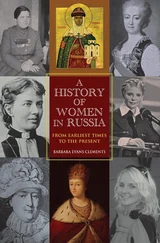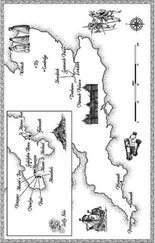Rory Clements - Prince
Здесь есть возможность читать онлайн «Rory Clements - Prince» весь текст электронной книги совершенно бесплатно (целиком полную версию без сокращений). В некоторых случаях можно слушать аудио, скачать через торрент в формате fb2 и присутствует краткое содержание. Жанр: Исторический детектив, на английском языке. Описание произведения, (предисловие) а так же отзывы посетителей доступны на портале библиотеки ЛибКат.
- Название:Prince
- Автор:
- Жанр:
- Год:неизвестен
- ISBN:нет данных
- Рейтинг книги:5 / 5. Голосов: 1
-
Избранное:Добавить в избранное
- Отзывы:
-
Ваша оценка:
- 100
- 1
- 2
- 3
- 4
- 5
Prince: краткое содержание, описание и аннотация
Предлагаем к чтению аннотацию, описание, краткое содержание или предисловие (зависит от того, что написал сам автор книги «Prince»). Если вы не нашли необходимую информацию о книге — напишите в комментариях, мы постараемся отыскать её.
Prince — читать онлайн бесплатно полную книгу (весь текст) целиком
Ниже представлен текст книги, разбитый по страницам. Система сохранения места последней прочитанной страницы, позволяет с удобством читать онлайн бесплатно книгу «Prince», без необходимости каждый раз заново искать на чём Вы остановились. Поставьте закладку, и сможете в любой момент перейти на страницу, на которой закончили чтение.
Интервал:
Закладка:
‘No. He will not be here this night.’
She saw that Sluyterman seemed undecided what to do or say next.
‘Please, come in, Mr Sluyterman,’ she offered, opening the door wider. She glanced up and down Dowgate. The street was empty save for a pair of tethered horses along the way towards the stable block. She smiled at her Dutch neighbour. ‘Perhaps I can help in some way.’
He nodded gratefully and stepped inside. They went through to the refectory. She offered him refreshment, but he declined. His hands were clenched into pink fists. His face was flushed, the colour of raw pork belly.
‘Please,’ he said. ‘Let me speak plain to you, mistress. I have tried to find lodging for Susanna, but no one is willing to help. The recent Return of Strangers, the placards, the gunpowder, our midnight call from Mr Topcliffe… all are scared.’
‘I understand.’
He looked around as if suddenly wondering where his servant girl was. ‘Is Susanna-’
Catherine shook her head. ‘You have nothing to worry about. She is well. She is in the kitchen with Jane, my housekeeper. I believe she is learning a few words of English.’
‘You are good people. Thank you.’
‘How did Susanna arrive here in England?’
‘It is a terrible story. She is the daughter of my clerk in Antwerp. He was taken prisoner by the Spanish. His throat was cut while he was bound. His wife — Susanna’s mother — has disappeared. No one knows where she is, but we fear the worst. Susanna escaped to Flushing, but she has suffered most grievously, mistress. She must not be sent back to the Low Countries. I fear she would throw herself overboard if they forced her on to a boat.’
‘We won’t let that happen to her.’
‘But she cannot stay here?’
Catherine shrank from the question. ‘No,’ she said quietly. ‘No, Mr Sluyterman, she cannot stay here. That would be too dangerous for all of us.’
‘What are we to do, then?’
She reached out and touched his hand reassuringly. ‘Fear not, I believe I know where she may go and remain in safety.’
Shakespeare understood well what this Perez mission was all about. One word: Essex. It was said the earl had changed from an exuberant, hot-blooded youth into a mature statesman within the past year. That, at least, was the image he wished to cultivate. Since being appointed a privy councillor just three months previously, he had been affecting the ways of an administrator, attending the House of Lords every morning and sitting in committees during the afternoon. The field of battle was now in his past; he fought instead for high office. He had certainly cozened those close to him. Shakespeare laughed bitterly at the words of the earl’s steward, Anthony Bagot, reported to him with glee by one of his intelligencers: ‘His lordship has become a new man, clean forsaking all his former youthful tricks, carrying himself with honourable gravity.’ A new man? New tricks, perchance, but there was nothing new about the man, nor his dark desires. Shakespeare knew from sharp experience that Essex had but one ambition — his own advancement. Nobleman, workman, priest, sovereign — all could hang if they stood in his way.
The rivalry between Robert Cecil and Robert Devereux, second Earl of Essex, was well known now. This was as open as the warfare between England and Spain. So if Essex had access to the secrets of a Spanish defector, then Cecil would pay almost any sum to have them first. Achieving that was John Shakespeare’s task, and he did not relish it.
He rode through the long evening hours. It was not an easy journey, for the road was poor and deeply holed and soon turned from open farmland to dense woodland. A drizzle came towards midnight, as he walked his mare through the dark acres of Epping Forest. A steady, slow rain dripped from the high, broad-leaf trees. The darkness was all-consuming and he became slower and slower. After he passed the village of Loughton, the tracks became thinner and more difficult to follow, with no milestones evident. His progress was painful. He had to pick his way like a blind man, continually ducking below low branches and over trees fallen across the muddy, neglected path. He was making not more than one mile to the hour. Finally, in the early morning, in the still twilight before dawn, he arrived at the hamlet of Epping. The rain had stopped. The village was nothing but a collection of farm buildings, a church, a pit of water for the passing livestock to drink their fill, and a wayside inn. He was pleased to see human movement in the yard.
A plump goodwife in kirtle and smock was feeding chickens. She looked up at him wide-eyed, startled to see a traveller at this hour. Shakespeare doffed his sodden cap to her and slid wearily from the grey mare. He and the horse needed victuals and drying out before he could call at Gaynes Park.
Twenty minutes later, wrapped in blankets, he sat in the inn’s kitchens. He had a mug of ale, some bread and butter. The landlord’s wife stoked up the cooking fire and hung his clothes across the mantel to dry. She put on three eggs to boil and laid out cold meats on a trencher.
‘How far to Gaynes Park, mistress?’
‘Two miles across the fields, master.’
‘Have you seen the people presently living there?’
‘Them?’ She hesitated as if the sharpness of her voice already told too much, then dismissed her caution. ‘Aye, they came here while riding out after deer one day last week. They stopped for ale. Two foreign gentlemen, sir, and a lady, with their retainers.’
‘What manner of people were they?’
‘That depends whom I’m talking to, master. I might say something different to my husbandman than I would say to you…’
‘I am no friend of theirs, but an officer of the Crown. You may speak plain to me in safety.’
‘Well, master, I will tell you this: they took ale and pie, then did ride off without paying, laughing all the while. We told the headborough, but he said he could do nothing, that they were the Earl of Essex’s guests.’
Chapter 10
‘ How many barrels of gunpowder do you think this time, Mr Laveroke?’
‘Six at the most. Waste not, want not. A quarter of a last will make a pleasant enough bang this fine June day, Mr Curl.’
Luke Laveroke and Holy Trinity Curl were in their rented warehouse close to the glassworks in Crutched Friars, just inside the walls to the east of the city. Shafts of sunlight from the gaps in the barnlike door caught the motes in the air and the dust of the powder, making a series of heavenly beams that seemed to illuminate the two men’s work. By the closed doors lay a heap of dung bought from the gong farmers. Its stench overpowered the distinctive smell of gunpowder so that passers-by would not wonder about the true contents of the building.
An old, rotting wagon that no one would miss when it had been blown to splinterwood stood backed up to the banks of barrels that filled half the dusty floor space of this ancient barn.
‘With God’s help, Mr Laveroke, it will make a very pretty bang and turn our enemies to offal. With God’s bountiful help. And we must pray that its ripples spread far, and serve to drive these venal Flemings and Walloons back to their own benighted land, and leave this fair city to us, the common people of England, to whom it rightly belongs. I think we shall have earned the gratitude of all true patriots for the work we do this day.’ Curl’s amber eyes met Laveroke’s and sought his approbation.
In reply, Luke Laveroke smiled a handsome smile as he idly cut his fingernails with the razor edge of his poniard. His teeth were good and his hair shone in the light. All true Englishmen might well be pleased by this day’s work, he thought, but even more so would true Spanish men. But that was not something he would say to Holy Trinity Curl. ‘Indeed,’ was all he said, thrusting his poniard back into his belt, then hoisting a barrel on to the wagon. ‘We shall earn a great deal of gratitude this day. Now haul away, Mr Curl. Our target awaits us.’
Читать дальшеИнтервал:
Закладка:
Похожие книги на «Prince»
Представляем Вашему вниманию похожие книги на «Prince» списком для выбора. Мы отобрали схожую по названию и смыслу литературу в надежде предоставить читателям больше вариантов отыскать новые, интересные, ещё непрочитанные произведения.
Обсуждение, отзывы о книге «Prince» и просто собственные мнения читателей. Оставьте ваши комментарии, напишите, что Вы думаете о произведении, его смысле или главных героях. Укажите что конкретно понравилось, а что нет, и почему Вы так считаете.












